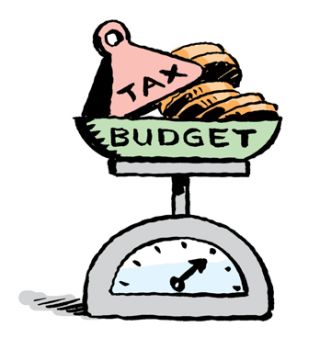Budget 2024 and taxation - an opportunity for reform

Budget 2024 should avoid using taxation measures as a means of providing short term solutions to the ongoing cost of living challenges that all of society continues to face. Reductions in income taxes, indirect taxes, excise duties and levies represent poorly targeted measures and should be avoided. Similar measures in Budget 2023 were regressive, with the benefits skewed to those on the highest incomes. The most prudent use of available resources is to target adequate increases in core welfare rates alongside targeted welfare supports for certain groups.
Budget 2024: an opportunity to reform Ireland's taxation system
Budget 2024 offers an opportunity for Government to reform some aspects of the current taxation system in the interests of enhancing fairness and sustainability. It is an opportune moment to do so given the strength of the economy. In the forthcoming Budget, Government should strategically approach taxation issues with the objectives of prudently using the available resources, continuing to build a fairer and more sustainable taxation system, and acknowledging that post-pandemic Ireland will need to raise more recurring tax revenue.
Summary of Social Justice Ireland’s main Budget 2024 taxation proposals
- Carbon Tax: Budget 2024 should continue to abide by Programme for Government commitments and increase the carbon tax, as planned, by €7.50 per tonne.It should also include a commitment to use the revenue raised to fund a series of targeted accompanying measures to protect those most affected by it, in particular low-income households and rural dwellers. This proposal would generate an additional €166m in a full-year to re-invest in accompanying measures.
- Post Pandemic Increase to Employers PRSI: In European terms Ireland collects very low levels of employers PRSI. For most jobs the rate in Ireland is 11.05% compared to a EU average of 21.34%. Budget 2024 should commence a process of increasing employers PRSI rates by 1% a year for the next five years (reaching 15.05% by 2028). Given the cost of living crisis, the initial increase should be delayed to commence from April 2024 and will raise an additional €600m in 2024.
- Taxing Empty Houses / Underdeveloped Land: Budget 2024 should empower local authorities to collect a new site value tax on underdeveloped land - such as abandoned urban centre sites and land-banks of zoned land levied at a rate of €2,000 per hectare (or part thereof) per annum and replace the current vacant sites levy. Budget 2024 should also introduce a levy on empty houses of €200 per month with the revenue from this charge collected and kept by local authorities. Income from both these measures would yield €100m for local authorities in 2024 reducing their central fund allocation by the same.
- Limit the ability to carry losses forward: In Budget 2024 Government should reform the tax laws so that limits are placed on the ability of individuals and corporations to carry past losses forward and offset these against current profits/income. We suggest introducing a rolling limit of 5 years on these losses commencing from midnight of the day Budget 2024 is announced. Losses prior to this period would no longer be available to offset against profits or capital gains. Budget 2024 would also extend and amend the current banking levy. Together this proposal would yield an additional €100m in 2024.
- Reform the R&D tax credit: A tax break for companies engaged in research and development was introduced in 1997 and has been revised and reformed on a number of occasions since. The use of this scheme has allowed a number of profitable firms to record zero or negative (or ‘refunded’) tax-paid amounts. This measure should be removed from the structure of this tax break in Budget 2024. It would yield €150m in a full-year.
- Abolish the Special Assignee Relief Programme: The SARP was introduced in 2014 to provide a tax reduction to high earning individuals who locate to Ireland for work purposes (generally in MNCs in IT and the financial sector). This subsidy was intended to boost the attractiveness of Ireland for foreign investment. However, there is no evidence to suggest the scheme has achieved this or that it has induced any recent investment and relocations that would not have otherwise occurred. The SARP should be abolished in order to make the tax system fairer. This would generate €35m in 2024.
- Minimum Effective Rate of Corporation Tax: Government should commence the adoption of a Minimum Effective Rate of Corporation Tax of at least 10% over time in Budget 2024 by making the relevant adjustments to implement a minimum effective corporate tax rate of 6 per cent for 2024/25. Such a rate would raise a stable and recurring additional taxation income of over €1 billion each year.
- Refundable Tax Credits: Introducing a system of Refundable Tax Credit (for the two main income tax credits), at a cost of €140 million in 2024 would allow low income workers who do not earn enough to use their full credit to have the unused portion “refunded”, and support their ability to deal with increasing living costs.
- Increase the PAYE and Earning Income tax credits for all workers by €5 per week at a cost of €670m in Budget 2024.
- Increase Capital Gains Tax and Capital Acquisitions Tax from 33% to 35% to yield €136m and €40m in Budget 2024.
- Increase the stamp duty on non-residential property from 7.5% to 8% to yield €59m in Budget 2024 and increase the stamp duty on residential property transfers (amounts in excess of €1m) to 5% to yield €64m in Budget 2024.
- Restore the Non Principal Private Residencecharge on second homes at €200 a year to yield €106m in Budget 2024.
For full details on all of our taxation proposals for Budget 2024 click here.